"I Decided to Pilot Healthy Food in Yeshivas - You Won't Believe the Reactions"
After dietitian Nir Cohen returned to his roots and was even appointed as an advisor to the Ministry of Health on matters related to the Charedi sector, he decided to promote a revolutionary program that introduces healthy food into yeshivas. In a fascinating conversation, he shares about his return to tradition, the experimental pilot, and his dream of removing bourekas and malawach from yeshivas.
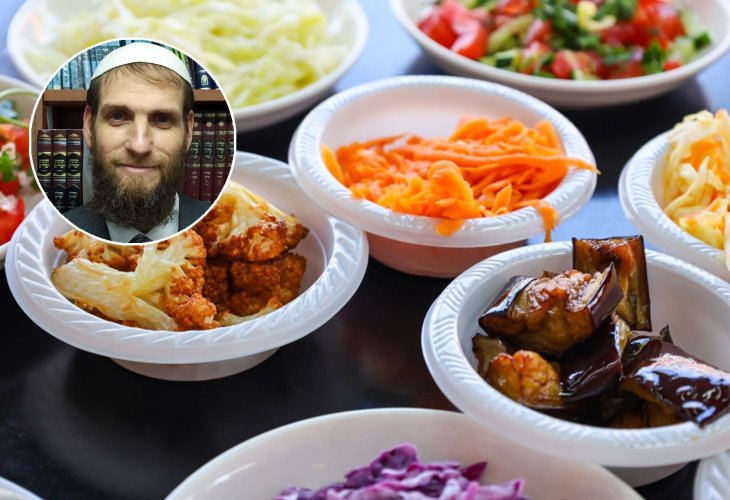 In the circle: Nir Cohen (background photo, illustration: shutterstock)
In the circle: Nir Cohen (background photo, illustration: shutterstock)If you meet Nir Cohen while he is attending Torah classes at 'Orot HaTorah' in Bat Yam, you might think he is just like any other yeshiva student; if you visit one of the clinics where he works as a dietitian—in Elad, Modiin Illit, Beit Shemesh, Jerusalem, and Bnei Brak—you will see a professional with extensive experience; and if you encounter him in the kitchen of one of the yeshivas across the country, advising the cook, you might think he is actually a chef.
Confused? Nir argues that all these areas are inseparably connected, and they actually constitute the essence of his life. A life filled with everything he could wish for—home and family, Torah study, concern for health and proper nutrition, and also advice for the Charedi sector which he loves so much and feels he represents. "But I wasn't born on this side of the map," he notes, taking us into his fascinating life story.
Seeking Answers
"I grew up in a family far from Torah and Mitzvot," says Nir, "Although my grandparents were observant and I saw a connection to Judaism, nothing was very close to me. Unfortunately, my family did not observe Shabbat, during Passover we only had a traditional meal, and other holidays were marked sparsely. Before my Bar Mitzvah, my grandfather made sure that someone taught me how to read the Torah, and during the Bar Mitzvah, I was so moved when I read the Torah portion that I couldn’t even read initially due to my tears. That was probably a sign of things to come."
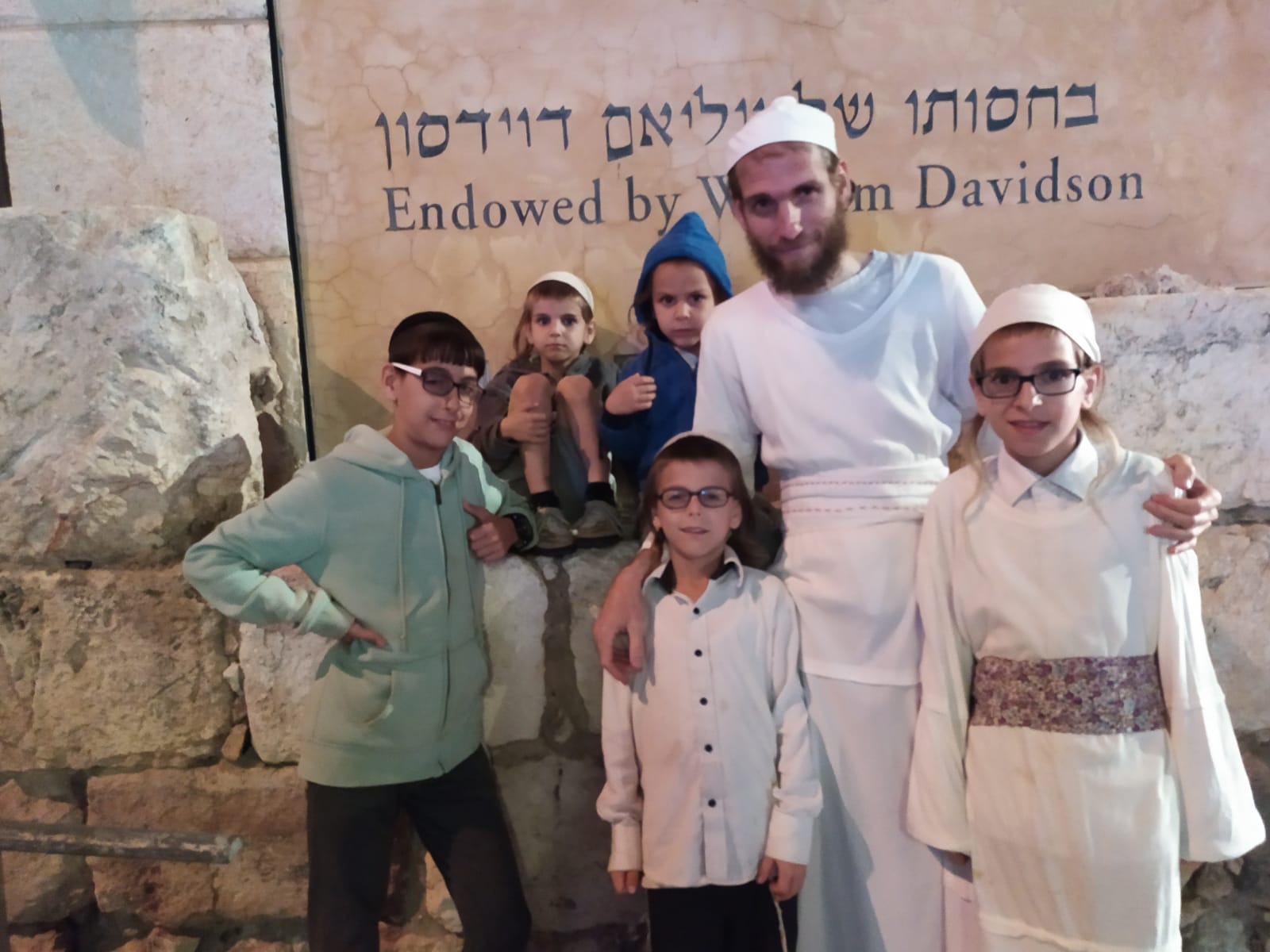 With the children after practicing the Passover sacrifice
With the children after practicing the Passover sacrificeSo how did you return to religious observance? What led to this?
"I think for most people who return to observance, it’s not something sudden but rather a process. For me, it was a very long process that started even before the army, continued throughout my military service and afterward. For example, in the early stages, I was exposed to the Shabbat prayers at a nearby synagogue. I would pass by and hear tunes and songs that really touched my heart. I was only 18 or 19, but something there drew me in. Still, at that time, I didn’t think it was supposed to impact me. I lived my life as someone who did not observe Torah and Mitzvot, I was a soccer player and engaged in other things.
"The more significant change came with a book I read. I remember to this day the place where I was while reading it—in a library in Tel Aviv. It wasn’t a Jewish book, but a well-known novel, and it illustrated to me that each of us has two paths in life, and our choice of path has significant meaning for our future.
"At that time, I was very occupied with thoughts about my way of life, and after reading the book I felt the conflict in my life—how can you keep playing soccer on Shabbat when you sing and acknowledge that Shabbat is 'the source of blessing'? I realized I was facing a crossroads—to observe Shabbat and know it is the source of blessing, or to ignore that and continue with life as usual. I went around, debating in my heart between the two options and trying to envision the scenarios of what would happen in each case. Eventually, I gathered the courage to decide to start observing Shabbat. I cannot say that from that moment everything was easy, but I felt that the saying 'Open for me the door the size of a needle and I will open for you the size of a hall' was realized in me. From the first Shabbat I observed, I felt I was only advancing spiritually. All of this, with Hashem’s help and the close guidance of my teacher and rabbi, Rav David Hai HaCohen, who supported me all the way, and whose words I drank with thirst.
"I must also note that initially, I was worried about the reactions of my parents and close relatives. Until then I was used to going with my dad to football matches every Shabbat, and generally, how can you observe Shabbat in a home that is disconnected from that? But once I was firm and knew I was doing the right thing, the family accepted it in good spirit. To this day I maintain excellent relations with my family, and they all very much appreciate the process I went through. It doesn’t mean they agree with everything, but when needed, they even know how to turn to me and ask me to pray for them, they truly feel there’s a blessing in it."
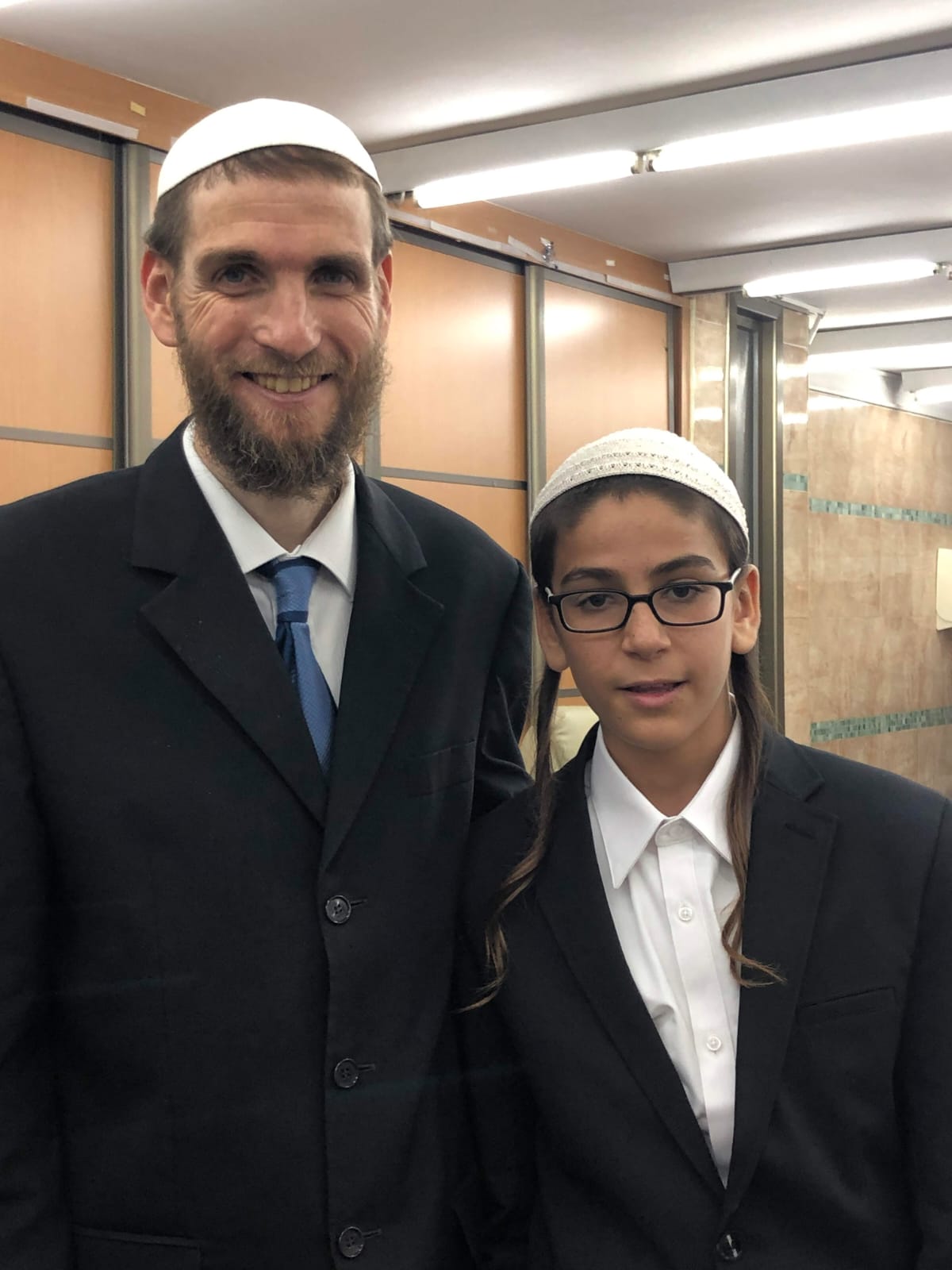 Picture from my son Ariel's Bar Mitzvah
Picture from my son Ariel's Bar Mitzvah
The Culinary Pilot
During those days, alongside his spiritual strengthening, Nir began his professional studies at Tel Hai College, where he chose to pursue a Bachelor’s degree in nutritional sciences.
Why nutrition specifically?
"I have always been connected to health topics, and there is also the Jewish value. I feel that in recent decades, the people of Israel are undergoing a return process in many areas: they are returning to their land after many years of exile, they are returning to speaking the holy language, they are returning to the Torah with mass return to observance in Israel, and they are waking up to return to their natural health aspect, people are more and more aware of healthy nutrition and seeking ways to feel better with their bodies.
"From the moment I finished studying and went to work, I realized I had an opportunity to make a difference in health and to be a good envoy to convey as many messages as possible in the field," he adds. "One of the things that led me all the time is the understanding that a person has a mission that only they can accomplish in the world, no one else. I saw that according to the signs Hashem gives me, my mission is to help improve the nutrition of the entire Israel and the Charedi community in particular. Practically, I try to help across all age groups—from young children, through yeshiva students, to yeshiva learners whom I help better organize their health.
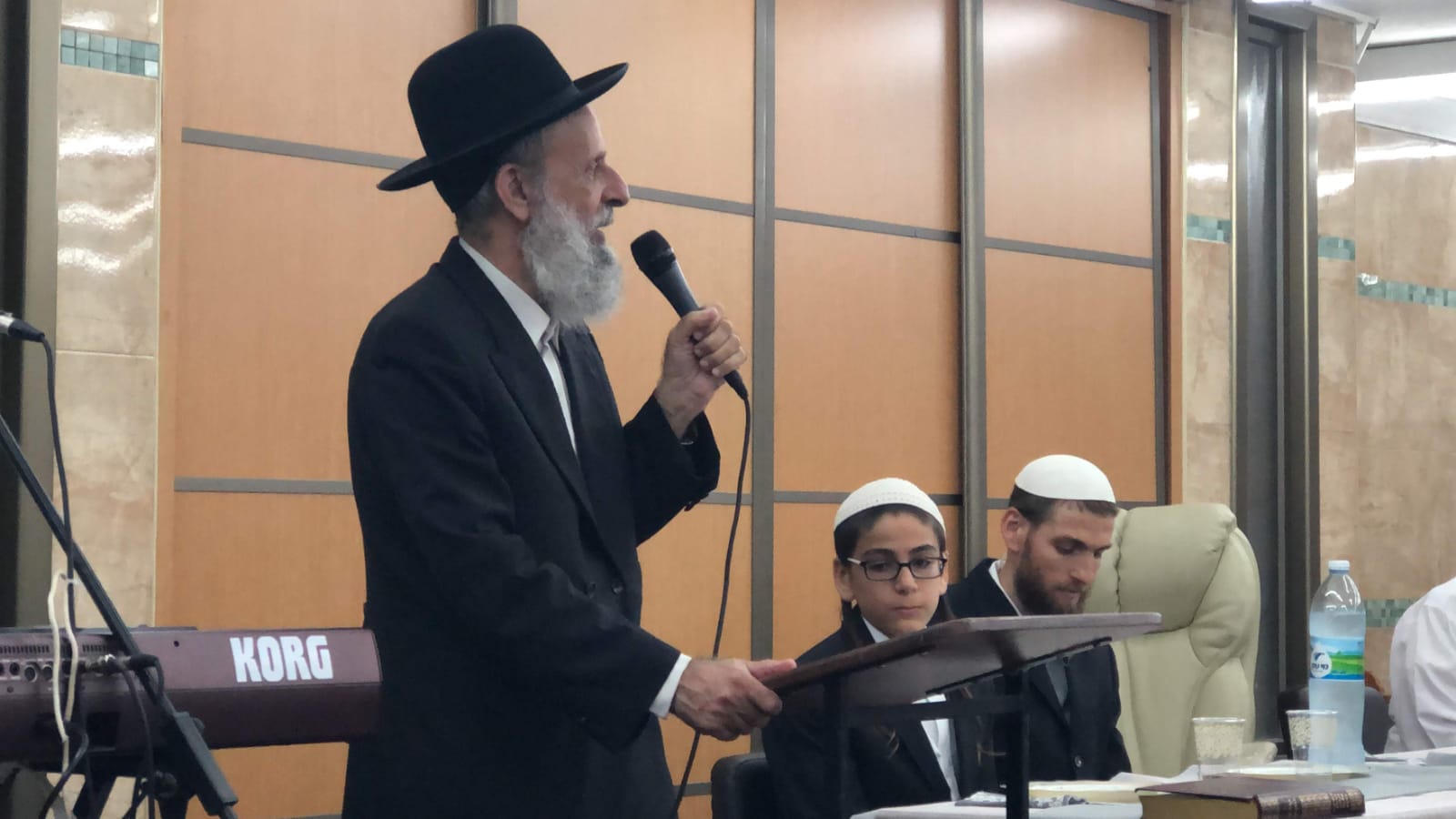 During a sermon of my teacher and rabbi at my son Ariel's Bar Mitzvah
During a sermon of my teacher and rabbi at my son Ariel's Bar Mitzvah"Over the years," adds Nir, "I noticed that during yeshiva years, it is very difficult for boys to maintain a healthy and proper diet, and it's not their fault. Unfortunately, in most frameworks, meals include a lot of food like bourekas, processed soy products, malawach, etc., there is a lack of fresh vegetables and almost no fruit served. More than once, I advised yeshiva students, and after they left my room, I would say to myself that a change is needed at the highest level, not just through personal advice, but an adjustment from above. Then came the day when I continued for a Master’s degree at Haifa University, and as part of it, I was required to conduct extensive research on a specific topic. I chose to do my research on the nutrition of yeshiva students, and I also managed to complete it successfully with Hashem’s help.
 (Photo: shutterstock)
(Photo: shutterstock)"Meanwhile," he continues, "an opportunity came to be an advisor to the Ministry of Health in the field of nutrition to the Charedi public. "I submitted my candidacy and one of the questions asked in the suitability interview was: 'What is the first thing you will do when you are chosen for the role?' For him the answer was clear and was based on the dream that has accompanied him for years: "I want to help improve the nutrition in yeshivas".
And the dream came true and even turned into reality. "After I entered the position, I submitted the program for improving nutrition in yeshivas, and I was fortunate to collaborate with excellent partners on the road who helped me promote the project. Among them were my guide in the field of nutrition, Prof. Ronit Endovert, head of the Nutrition Department at the Ministry of Health, as well as Carmit Safra, former deputy head of the Nutrition Department at the Ministry of Health. I also received great assistance from Dr. Moran Bleichfeld Magnazi, Deputy Head of the Nutrition Department and responsible for the nutrition field in the Charedi public, and finally, I enlisted the initiative of Israel Dodek, a senior chef in the Charedi public. Thus, we launched a pilot in yeshivas as part of the "Healthy Possible" program. The pilot was directed directly at the cooks and not the administrators."
What did you propose in the pilot?
"We called the program 'TaBaCH' – an acronym for 'Tasty', 'Healthy' and 'Economical'. The idea was to provide courses to cooks where they would learn to prepare food that is healthy and not based on processed and harmful foods. It was important to us that it would also be economical since sometimes the cooks in the yeshivas prefer unhealthy food because it’s cheaper. We taught them how to cook healthy food while maintaining cost-effectiveness, and of course, the food needs to be tasty, because otherwise, no one would eat it."
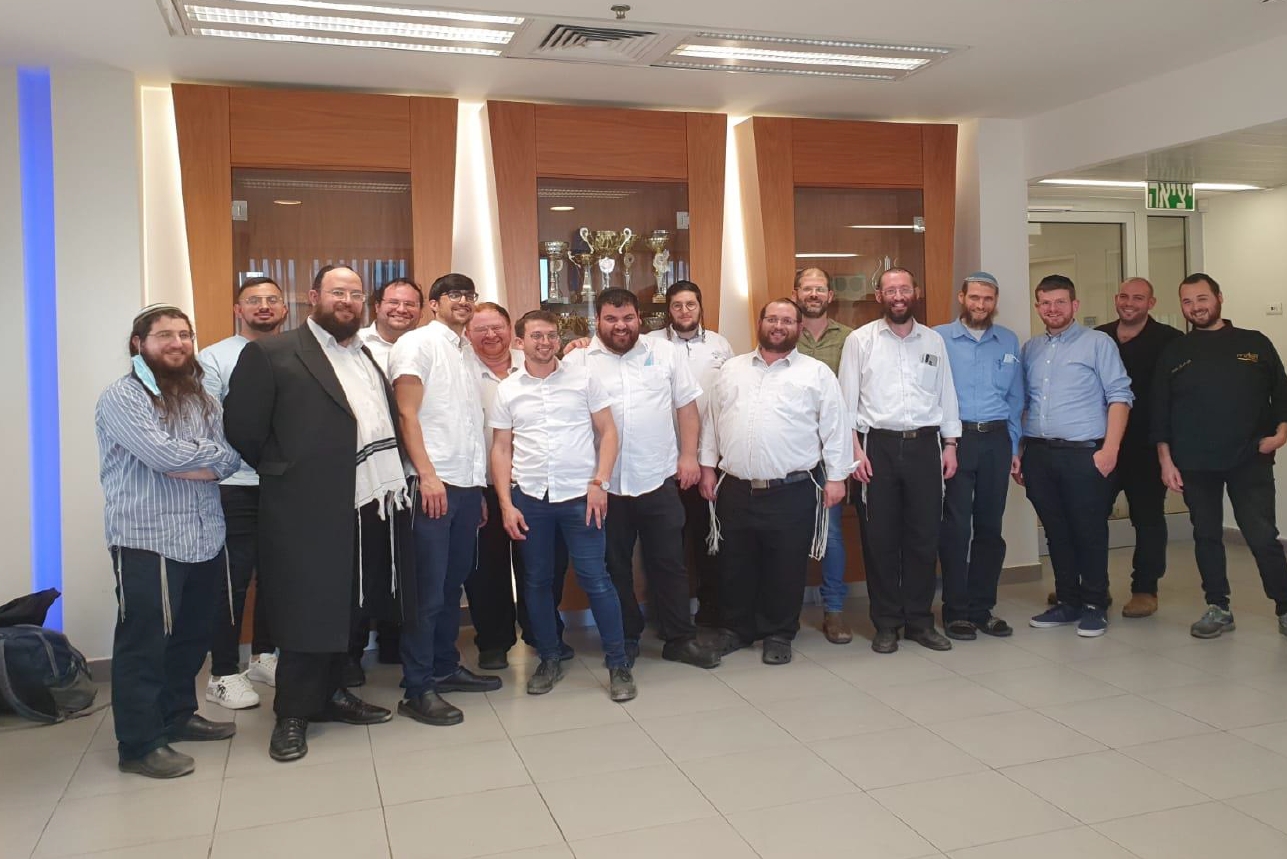 The summary meeting of the TaBaCH program
The summary meeting of the TaBaCH programIs this really possible?
"Chef Israel Dodek has greatly proven to us that this is certainly possible, and he found amazing methods to teach cooks how to create healthy, nutritious, and tasty meals within the existing budget. The program was so successful that it was adopted in many yeshivas in Jerusalem, in Ofakim, in Netivot, in Tifrach, and other places. I am a great believer in this program, and it is clear to me that with Hashem’s help, it will eventually reach additional yeshivas across the country because there is really no reason why it shouldn’t."
And there is something else he is working on: "In recent years, I have written a special work that connects the guidance of the greats of Israel and the sages from all generations with the topic of healthy nutrition. I divided it according to the weekly Torah portions and the holidays, where I found an idea and context for the topic I deal with in each portion. The book is about to be published, with Hashem’s help soon, and I feel there is a great mission in it—to show how, precisely as a Torah-observing community that is faithful to Hashem’s word, we are obligated to be a symbol and example in the health field. We must not ignore that. This is our mission."

